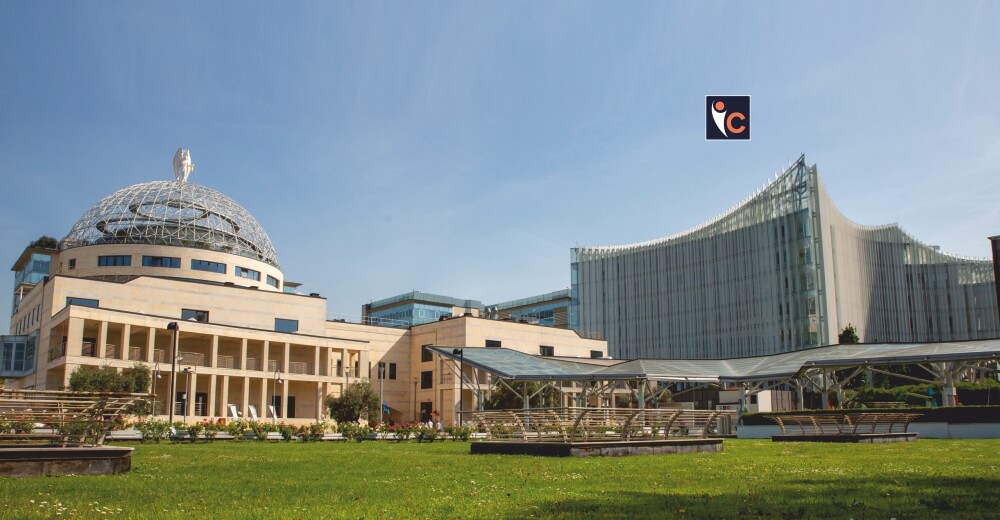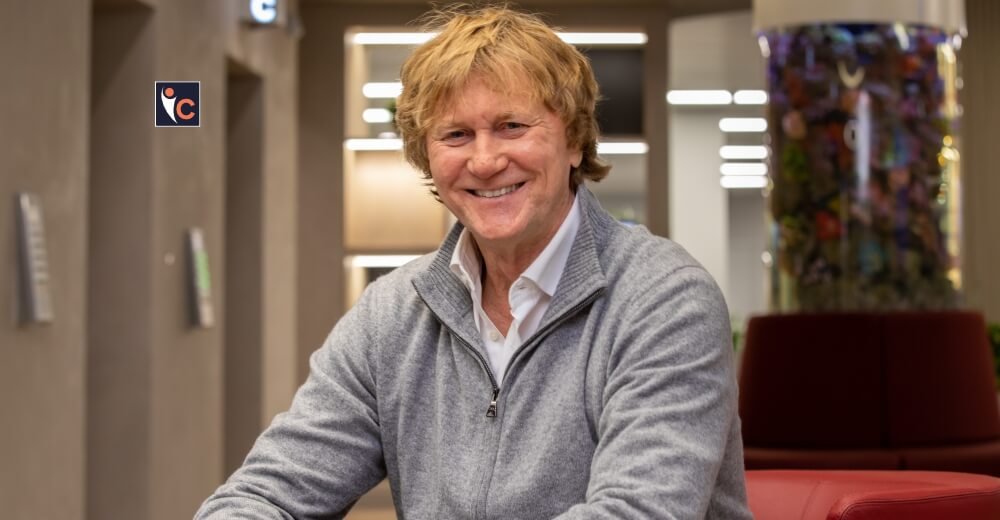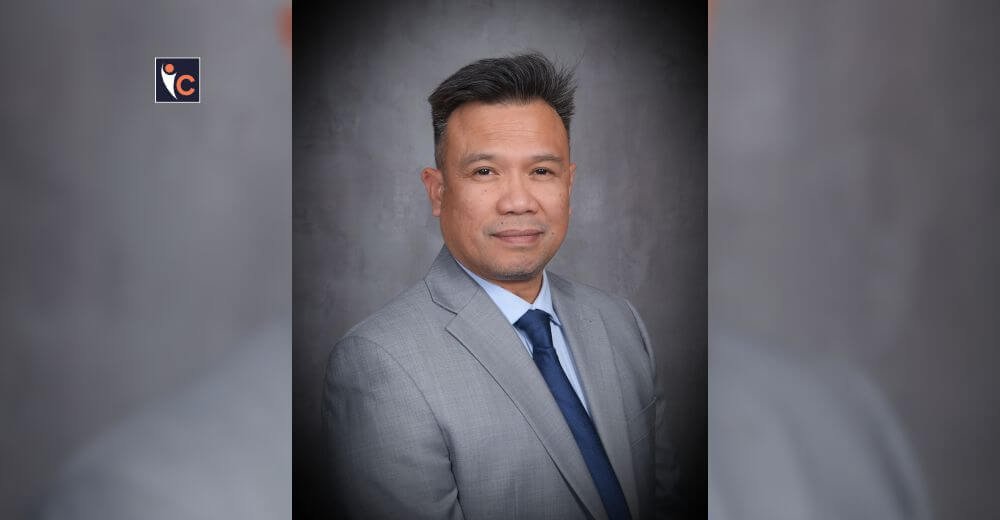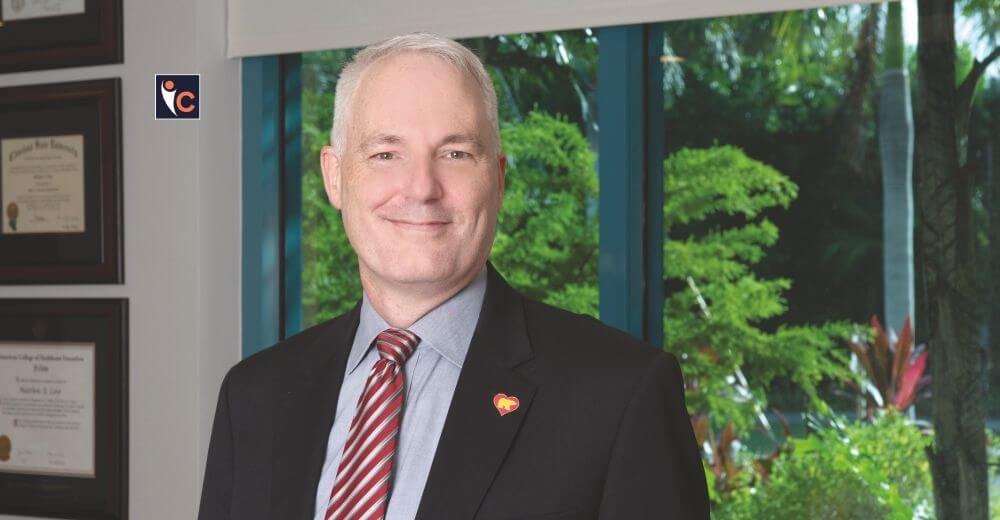The link between mental and physical health is significant, as mental illness can lead to more physical health issues and a shorter lifespan. Conversely, physical illness can negatively impact mental health and treatment responses. Subjective well-being is closely tied to mental health and influenced by genetics and societal changes. Factors like stress, substance abuse, and migration can worsen mental health.
Addressing this requires investment in expertise, targeted treatments, and reducing stigma. Though historical stigma has been a barrier, advancing knowledge and personalized care offer hope for widespread mental well-being and accessible treatment. Increased global attention and neuroscience progress have elevated mental health in healthcare systems.
Dedicated to tackling mental and physical suffering in humans, San Raffaele Hospital began its Mental Health adventure 25 years ago. They were driven by the motto – ‘There is no Health without Mental Health’ one of the most frequently quoted by a large corpus of studies and organizations, including the WHO.
At the forefront of this giant organization is Marco Centenari, CEO of San Raffaele University Hospital who oversees the operations of the hospital and ensures that it provides high-quality care to patients.
Another pivotal figure at the hospital is Professor Roberto Cavallaro, Director of General Psychiatry who leads Schizophrenia Research and Clinical Units at San Raffaele. He is also a full-time Professor of Psychiatry and Dean of the Studies of the master’s degree in medicine and surgery at Vita-Salute San Raffaele University. He possesses strong expertise in psychotic disorders, neuroscience, and molecular biology and has even published numerous research articles.
While interacting with Insights Care Marco and Roberto shared the importance of mental health and how their hospital is leading as one of the best mental health service providers:
Pioneering Mental Health Care and Research
The Mental Health Department at San Raffaele University Scientific Hospital operates in alignment with the institution’s expansive vision and goals. It falls under the umbrella of a comprehensive range of medical specialties, encompassing both clinical and research services, all of which are closely linked to Vita Salute San Raffaele University.
Much like their commitment to Mental Health, San Raffaele University Hospital’s overarching objective is to offer tailored, forward-thinking care to every patient. This is achieved through the integration of cutting-edge research and clinical methodologies, ultimately making patient care personalized, preventive, predictive, and participative.
San Raffaele Scientific Institute stands as the foremost Italian institution for research endeavors and ranks prominently in terms of clinical activity. In the previous year alone, it produced nearly 2,500 scientific papers, with roughly half being featured in the top 10% of global scientific journals. Additionally, there are currently over 1,300 ongoing clinical trials, with half of them stemming from the translation of their combined clinical and laboratory research efforts.
Core Values and Mission at San Raffaele
The Hospital and University maintain a dedicated commitment to integrated care, research, and education. The focus on neurosciences and mental health has been central to their development. The Department of Mental Health at San Raffaele demonstrates the effectiveness of this approach through its clinical, research, and academic achievements. Each year, thousands seek consultations and treatment within our open care system for mental health, receiving diagnostic support and therapy. The institution has long-standing practices in place to address mental health and wellness within both consultation psychiatry and psychological medicine in the general hospital setting, as well as within the Department of Mental Health, which offers Psychiatry and Clinical Psychology services across all levels of referral, from diagnosis to therapy.
Role of Compassion in Mental Health
The general hospital frequently encounters individuals with unaddressed mental and psychological conditions that manifest during medical episodes. These patients often did not seek help due to a lack of awareness or fear of stigma. The increasing number of treatments in the hospital highlights the growing demand for specialized care. This is particularly evident in cases where psychological issues coincide with the development of medical illnesses. These patients must navigate the challenges of chronic illnesses or intensive treatments for life-threatening conditions such as cancer, or even the revelation of previously undetected mental health issues during a medical or surgical referral.
From its inception, the San Raffaele Scientific Institute Hospital has been marked by a deep sense of compassion from its medical staff, reflecting the Founder’s belief that the body, mind, and soul should be addressed simultaneously in those who suffer. Many treatment protocols for chronic illnesses, especially in oncology, extend beyond medical care and encompass aspects of communication and stigma reduction within the community, particularly for conditions like female tumors. Additionally, the hospital actively collaborates with patient associations specializing in various areas, such as neurology.
Therapeutic Tools in Treating Mental Illness
In San Raffaele Hospital’s Mental Health services, various key concepts drive their motivational, operational, organizational, and delivery aspects. These are all centered around the individual and their unique experience of illness and discomfort within a clinical context:
1) Deep experience in assessment of psychopathology and its relationships with biological and psychological determinants within a global vision of the person as a unique combination of physical and mental health passed through the filter of personal history and time;
2) Specialization in different psychopathological areas, with discrete clinical units, dedicated to the main spectra of psychopathology (i.e. mood disorders, anxiety disorders, psychotic disorders, alcohol abuse, geriatric psychiatry, eating disorders), performing at the same time translational, reverse translational and clinical research, clinical assistance and care;
3) Full and fast deployment of consolidated research results into clinical routines;
4) Development and use of technology for aspects of the illness not covered with effectiveness by other conventional treatments, and massive use of blended programs including pharmacological, behavioural, psychotherapy and technology-based treatments to address different components of the illness in a medically-driven but immediately rehabilitative approach since the first days of treatment (including computer-aided cognitive remediation, neurophysiological manipulation with TMS and rTDCs, light therapy);
5) Innovation through research and clinical use of most instruments in a neuroscientific rather than a purely diagnosis/indication treatment perspective;
6) Continuity of the assistance, from ambulatory to ward or vice-versa, warranted with the same psychiatrist and psychologist;
7) High specialization, within the above-cited frames of nursing and rehabilitation professionals, like psychiatrists, both within discrete psychopathological areas, both in the technological deployment and clinical use of new instruments of care.
San Raffaele’s Unique Services
At San Raffaele Hospital, patients have the option to receive assistance through either the National Security universal system, paying a nominal fee for each service, or as full-paying individuals for any ambulatory or inpatient care they require.
Unlike the National Security Mental Health System in their country, San Raffaele’s services have no specific catchment area. Patients are free to seek assistance from the institution regardless of their location within the country. The Mental Health Department at San Raffaele boasts a reputation that extends beyond regional boundaries, earning recognition as the top Italian private institution for both clinical and research endeavors. In contrast, public mental health services in Italy offer free care, but patients must visit the department designated for their exact town or street of residence. Out-of-pocket expenses at these institutions are limited and pertain only to individual professionals, not organized activities as San Raffaele offers, such as coordinated reservations for multiple clinical activities in a single day.
Most other private Mental Health Institutions in Italy are typically small-scale and primarily associated with the Free National Security system. They often lack research and academic initiatives, focusing solely on clinical care.
A patient’s journey at San Raffaele can commence with an ambulatory visit initiated by the patient themselves or by their relatives, friends, or caregivers. It may also originate from an ambulatory consultation referred by another specialty ambulatory or ward, or through the consultation-liaison medicine service within the general hospital, or even from the emergency department.
After an initial assessment and formulation of a diagnostic plan, the individual may proceed with ambulatory care under the guidance of professionals from the specific unit (e.g., mood disorders unit for depression or bipolar disorders, psychotic disorders unit for schizophrenia, clinical psychology for personality disorders). Alternatively, they may be admitted to a ward, either acute for brief and intensive treatments or further diagnostic evaluation, or rehab, when needs are already clearly identified within the complex framework of personal, social, and psychopathological characteristics that define the clinical presentation. Rehabilitation can take place in residential wards for intensive rehab over a few weeks or in a day-care facility, both tailored to discrete psychopathological areas with distinct rehabilitation needs and pathways. A semi-residential facility is also available for the long-term rehabilitation of psychotic disorders.
Dedicated ambulatories have been established for treatments that require hospital-administered medication or tolerability monitoring, ensuring patient convenience. The organization of ambulatory care also encompasses the delivery of technology-based treatments and personalized ‘one-to-one’ programs that incorporate various professional interventions within a streamlined and convenient schedule for outpatients.
Making a Mark in Mental Health Care
The Mental Health department at San Raffaele seamlessly integrates itself into the institution’s top ranks. Over the past five years, they’ve contributed to more than 600 scientific publications in indexed Journals of Psychiatry, Neurosciences, and Psychology. This department handles approximately 2,000 hospitalizations and 35,000 ambulatory visits each year. Their accomplishments are well-known, thanks to a substantial communication campaign spanning professional and popular spheres, including press, television, and social media.
Inspiring Words for the Budding Professionals
All of the above-mentioned features, including precise selection and ongoing professional development for mental health experts, in-house translational research, and advanced technology, are considered crucial for individuals aspiring to excel in the mental health sector and emerge as leading providers with continually improving outcomes. The optimal scenario involves implementing these elements from the organization’s inception, establishing a standardized intervention model that minimizes variability and subjectivity in decision-making, and prioritizing well-structured pathways for diagnosis and treatment, ultimately enabling the application of truly personalized medicine.
San Raffaele’s Strategic Vision
San Raffaele’s primary future objective is to continuously invest in the growth of mental health professionals and their training. Simultaneously, there is an ongoing commitment to updating technological instrumentation and integrated treatment protocols. Precision Mental Health stands as a growing challenge for the upcoming decade, incorporating molecular biology and instrumental analysis to tailor treatments to each patient’s specific needs and underlying causes of illness, often utilizing AI.
Recent efforts have been directed towards the development of strategic research projects focused on aging, neurodegenerative diseases, artificial intelligence, and drug discovery and development, including innovative cell and gene therapies. These advancements aim to usher in a new era of medicine, one that will significantly impact patient care, both medically and socio-economically.
Collectively, these initiatives serve as a compelling testament to San Raffaele Hospital’s dedication to providing relief and support for those seeking help in the sphere of Mental Health and Mental Wellness.










